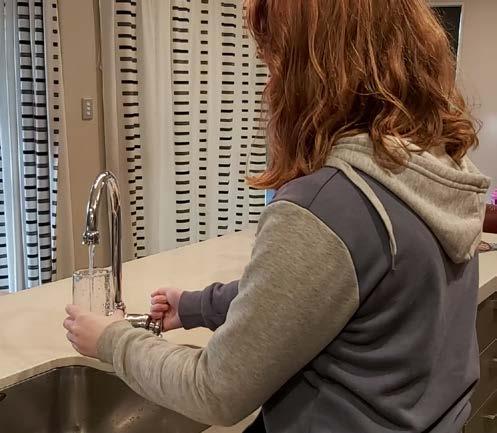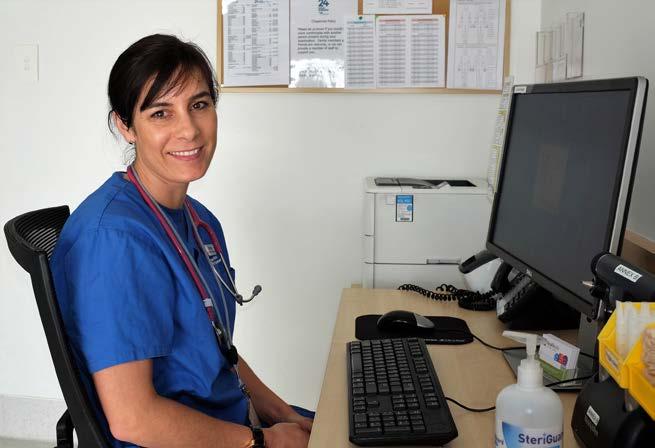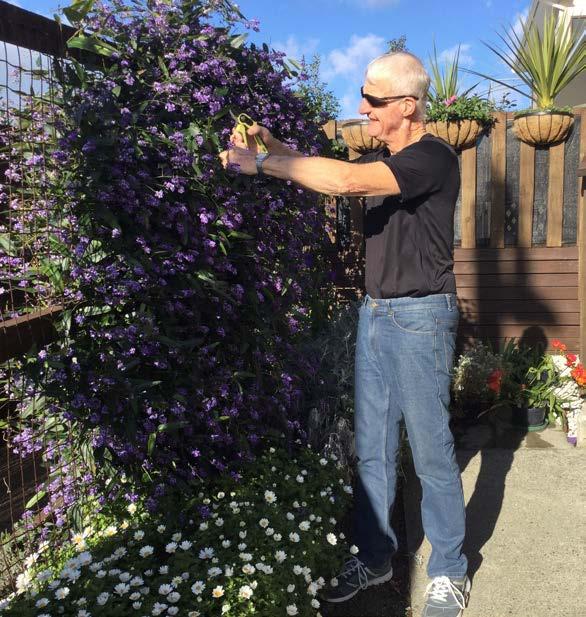PEGASUS 2025 I S S U E / P U TA N G A 3 NURSES BENEFIT FROM URGENT CARE TRAINING GROUND 2020 is a big year for nurses. Not only is it the International Year of the Nurse and Midwife, nurses are part of the front facing health care workers dealing with COVID-19. The extra training opportunities now offered at Pegasus Health’s 24 Hour Surgery (24HS) have come at the right time. Nurses wanting to further their skills to become Registered Nurse (RN), designated prescribers and possibly onto Nurse Practitioners can do this in the urgent care facility. A Nurse Practitioner (NP) is essentially ‘an expert’ nurse who has completed Masters level education and is registered in a higher level or scope of practice. A NP can order and review diagnostic tests, develop treatment plans and prescribe medications for people without having to work directly with a doctor.
24HS Operations Manager, Claire McQuilken says the 24HS is the perfect place to offer training in an urgent care setting. The added advantage is the exposure general practitioners will get to a Nurse Practitioner model as they work alongside the NP in the urgent care facility. “We see all types of cases here. Wounds, sudden illness and broken limbs can all come through our doors at any time,” says Claire. Once trained our NPs are available for general practices on a fully funded basis, to help with practice caseloads for up to six months. At first the practice will provide supervision and then the NPs will see patients on their own, sharing the workload of the general practitioner. “Pegasus Health has been paving the way for NP training for some time. We are now ready to provide practical training to NPs and RN designated prescribers and then support their development into the community - working with general practice. It benefits the nurse, the general practice and the patient who may be seen in a shorter time-frame,” says Lead Nurse Practitioner, Amelia Howard-Hill. It also supports us to provide equitable access and equitable outcomes for our vulnerable populations, particularly Māori.
This qualification recognizes the added skill of the nurse and they can work alongside their medical colleagues to meet the needs of their community. As part of the final year of the NP training programme, the trainee NPs (known as NP interns) work in general practices as a second training site on a fully funded basis, to help with practice caseloads for up to a day per week, for 10 months. A GP or NP will supervise the NP intern’s learning, and with time and support the intern will be seeing patients on their own, sharing the workload of the general practitioner. Nurse Practitioner Ameila Howard-Hill says NP training benefits all parties
23 SEPTEMBER/ HEPETEMA 2020
3 |





